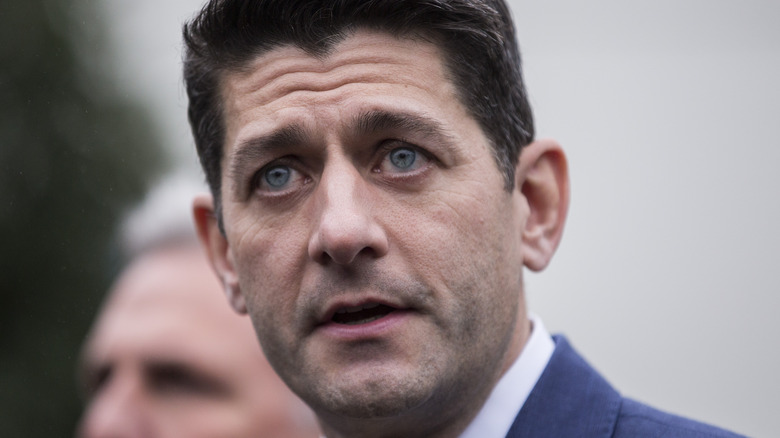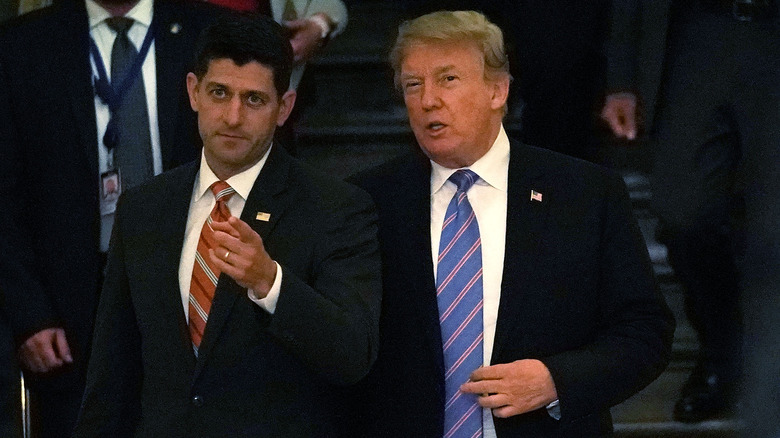What Did Paul Ryan Really Do After Donald Trump Won The 2016 Election?
We may receive a commission on purchases made from links.
If you can remember back that far, there was a time when former President Donald Trump didn't actually have the support of every Republican in politics. In fact, before he won the Republican primary and became the GOP candidate for president way back in 2016, you'd have a hard time finding any high-profile Republican who supported him. And even after he won the election, there were a few members of his party who stayed a bit suspicious, including former Speaker of the House Paul Ryan.
Ryan has been officially retired from politics for a couple of years now, but he is still pretty clear about how he feels about the twice-impeached former POTUS. Unlike many other members of his party, he's been unequivocal about the fact that Trump lost the 2020 presidential election, per The Independent, and has given speeches urging the rest of the Republicans to please move on from this one guy, as The New York Times reported.
Now, a new book by journalist Bob Woodward seems to suggest that Ryan had been trying to find a way to deal with Trump from the very beginning.
Paul Ryan decided to do some research
According to The Hill, Bob Woodward and Robert Costa's new book "Peril" claims that soon after Donald Trump unexpectedly won the 2016 presidential election, Paul Ryan started researching the best way to work with an "amoral and transactional" person. Not only that, but the book also says that a doctor and Republican donor acquaintance of Ryan's told him in an email that he needed to understand what a "narcissistic personality disorder" is.
According to the Mayo Clinic website, a narcissistic personality disorder is defined as "a mental condition in which people have an inflated sense of their own importance, a deep need for excessive attention and admiration, troubled relationships, and a lack of empathy for others."
Any medical doctor worth their salt will tell you that you cannot accurately diagnose a person with any kind of disorder from afar, and you definitely can't do it if you're not a trained mental health medical professional. That said, Ryan's doctor friend (and, to be fair, lots of other psychiatrists and psychologists) noted that from the outside, Trump certainly seems to have some of the classic traits. According to the book, Ryan spent "weeks" studying links and information about the disorder sent to him by this doctor and was convinced that Trump had it. And hey — maybe it worked. After all, the book also notes that it was Ryan who got Trump to back down from supporting white supremacists at the Charlottesville rally in 2017.


